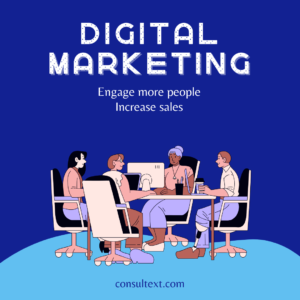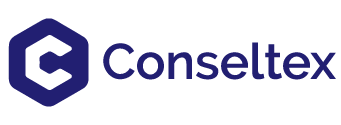A Global Reach: Digital marketing opportunities and challenges allow businesses to reach a global audience. With the internet’s vast reach, you can connect with potential customers worldwide, irrespective of geographical boundaries. The main focus of this article is on what exists in digital marketing opportunities and challenges. I will discuss both the positive aspects and the difficulties that come with this field.
Targeted Advertising: Digital marketing offers advanced targeting options, enabling you to reach specific demographics, interests, and behaviors. Consequently, this can result in more effective and cost-efficient marketing campaigns.
Data Analytics: Marketers can collect and analyze a wealth of data about their audience’s behavior. As a result, information can be used to make data-driven decisions, refine strategies, and optimize campaigns for better results.
Digital marketing opportunities,
Cost-Effective: they offer target advertising options that can reach a wide audience without breaking the bank.
Personalization: Marketers can create highly personalized content and offers for their target audience, leading to increased engagement and conversion rates.
Real-Time Marketing: You can react to real-time trends and events, allowing you to be more agile and responsive in your marketing efforts.
Multiple Channels: There are various digital marketing channels, including social media, email marketing, content marketing, SEO, PPC advertising, and more. This diversity offers options to reach your audience through their preferred platform.

Challenges :
Digital marketing opportunities,
Increasing Competition: The digital landscape is highly competitive. Businesses of all sizes are investing in digital marketing, making it harder to stand out and reach your target audience.
Digital marketing opportunities,
Algorithm Changes: they help improve the user experience and ensure the content shown is relevant and engaging. Algorithms are like a set of rules that determine how content is ranked and personalized for each user
Data Privacy and Regulations: Data privacy concerns and regulations like GDPR and CCPA have restricted how businesses can collect and use customer data, making it more challenging to target and personalize marketing efforts.
Ad Blockers: Many users employ ad blockers to prevent ads from appearing on websites and in apps. This reduces the visibility of digital ads and their effectiveness.
Content Saturation: The internet is inundated with content, which can make it difficult to capture your audience’s attention. Creating high-quality and relevant content is essential to cut through the noise.
DIGITAL MARKETING OPPORTUNITIES
Digital marketing opportunities, Search Engine Optimization (SEO): Optimizing your website to rank higher in search engine results is crucial for organic visibility. It involves keyword research, on-page and off-page optimization, and content creation.
Content Marketing: It is a way to provide helpful information, entertain, or inspire people while also promoting your brand or products.
Digital marketing opportunities,
Social Media Marketing: Leveraging platforms like Facebook, Instagram, Twitter, and LinkedIn to build a social media presence and connect with your audience.
Using email marketing, you can send promotional offers, share updates, or even build a relationship with your customers
Pay-Per-Click (PPC) Advertising: Running paid advertising campaigns on platforms like Google Ads and social media networks to drive traffic and conversions.
Affiliate marketing: is a great way to monetize your online presence, regardless of whether you have a blog or a website
Content Advertising: Placing sponsored content or ads on popular websites or platforms to reach a broader audience.Digital marketing opportunities,
Video Marketing: Creating and promoting video content on platforms like YouTube and social media to engage with users and convey messages effectively.
Mobile Marketing: Optimizing your digital marketing strategies for mobile devices, including mobile apps and mobile-optimized websites.
Influencer Marketing: Collaborating with influencers or industry experts to promote your brand or products to their followers.
Digital marketing opportunities,
Analytics and Data Analysis: Using tools like Google Analytics to monitor website traffic, user behavior, and campaign performance to make data-driven decisions.

E-commerce Marketing: If you run an online store, there are specific strategies for e-commerce marketing, such as product listings, reviews, and cart abandonment recovery.
Local Search Marketing: Targeting a local audience through tactics like Google My Business optimization, local SEO, and geo-targeted advertising.Digital marketing opportunities,
Remarketing and Retargeting: Reaching out to people who have previously visited your website or engaged with your content to encourage them to return and take action.
Chatbots and AI in Marketing: Implementing chatbots and AI-driven solutions for customer support, engagement, and personalization.
Voice Search Optimization: Optimize your content for voice search queries as more people use voice-activated devices like smart speakers and voice assistants.
Marketing Automation: Using tools and software to automate marketing tasks, such as email sequences, lead nurturing, and social media posting.
Blockchain and Cryptocurrency Marketing: Exploring marketing opportunities in the blockchain and cryptocurrency space, which is evolving rapidly.
Digital marketing opportunities,Keep in mind that the best digital marketing strategies depend on your specific goals, target audience, and industry. It’s essential to continually adapt and experiment with different approaches to find what works best for your business or personal brand.
TOOLS OF DIGITAL MARKETING OPPORTUNITIES AND CHALLENGES
Content Creation and Management:
Content Management Systems (CMS): Platforms like WordPress, Drupal, and Joomla make it easy to create and manage websites and content.
Graphic Design Software: Tools like Adobe Creative Suite (Photoshop, Illustrator, InDesign) for creating graphics and visuals.
Video Editing Software: Tools like Adobe Premiere Pro, Final Cut Pro, or online platforms like Adobe Spark for video content.
Search Engine Optimization (SEO):

Digital marketing opportunities,
Keyword Research Tools: Tools like Ahrefs, SEMrush, Moz, and Google Keyword Planner to find relevant keywords.
SEO Auditing Tools: Tools like Screaming Frog, Moz, and Google Search Console for website audits.
Link Building Tools: Tools to manage and track backlinks, such as Ahrefs and Moz.
Social Media Marketing:
Social Media Management Tools: Platforms like Hootsuite, Buffer, and Sprout Social for scheduling and managing social media posts.
Social Media Analytics Tools: Tools like Facebook Insights, Twitter Analytics, and Instagram Insights for monitoring performance.
Social Media Advertising Platforms: Facebook Ads Manager, Twitter Ads, and LinkedIn Ads for paid social advertising.Digital marketing opportunities
Email Marketing:
Email Marketing Platforms: Tools like MailChimp, Constant Contact, and HubSpot for creating and sending email campaigns.
Marketing Automation Tools: Platforms like Marketo, Pardot, and ActiveCampaign for automated email marketing.
Pay-Per-Click (PPC) Advertising: Digital marketing opportunities,
Google Ads: Google’s advertising platform for running PPC campaigns.
Bing Ads: Microsoft’s advertising platform for PPC advertising on Bing and Yahoo.
Social Media Advertising Platforms: Facebook Ads, Twitter Ads, and LinkedIn Ads for paid social advertising.
Analytics and Data Analysis:

Google Analytics: A free tool for tracking website traffic and user behavior.
Google Data Studio: A tool for creating customized, interactive reports and dashboards.
Marketing Analytics Suites: Tools like Adobe Analytics, IBM Analytics, and HubSpot Analytics for in-depth marketing data.
HubSpot: Digital marketing opportunities, Offers a suite of tools for inbound marketing, CRM, and automation.
Marketo: A comprehensive marketing automation platform.
Pardot: Salesforce’s marketing automation solution.
Content Creation Tools: Tools like WordPress, Blogger, and Medium for publishing content.
Content Distribution Tools: Social media, email marketing, and SEO tools for promoting content
E-commerce Platforms: Tools like Shopify, WooCommerce (for WordPress), and Magento for creating online stores.
Payment Processors: PayPal, Stripe, and Square for processing online payments.Digital marketing opportunities
Salesforce: A popular CRM system used for managing customer relationships and sales.
HubSpot CRM: Offers a free CRM solution with various marketing and sales features.
A/B Testing and Conversion Optimization:
Tools like Optimizely and VWO (Visual Website Optimizer) for A/B testing and conversion rate optimization.
How to promote business on Facebook
Digital marketing opportunities, Promoting your business on Facebook can be a highly effective way to reach a large and engaged audience. Here are some steps and strategies to help you promote your business on Facebook:
- Create a Facebook Page:
- If you haven’t already, create a Facebook Page for your business. Make sure to choose the right category and fill out all the necessary information, including a profile picture and cover photo.
- Share High-Quality Content:
- Post regularly with high-quality content that is relevant to your audience. This could include product updates, informative articles, engaging videos, and more.
- Use Facebook Advertising:
- Facebook offers various advertising options to help you reach a larger and more targeted audience. You can create ads based on your goals, such as brand awareness, website traffic, lead generation, or sales.
- Define Your Target Audience:
- Utilize Facebook’s ad targeting features to reach specific demographics, interests, and behaviors. This ensures that your ads are seen by people more likely to be interested in your products or services.
- Engage with Your Audience:
- Respond to comments and messages promptly. Engaging with your audience shows that you value their input and can help build a loyal community around your brand.
- Create Facebook Groups:
- Consider creating a Facebook Group related to your business niche. Groups can be a great way to foster a sense of community and engage with your audience more deeply.
- Run Contests and Giveaways:
- Organize contests or giveaways to encourage user participation and increase brand awareness.
- Use Facebook Insights:
- Monitor your Facebook Page’s performance using Facebook Insights. This tool provides valuable data on your audience’s behavior, which can help you refine your content and advertising strategies.
- Collaborate with Influencers:
- Partner with influencers in your niche who have a substantial following on Facebook. Their endorsement can help introduce your brand to a broader audience.
- Boost Engaging Posts:
- Consider boosting your best-performing organic posts to reach a larger audience.
- Consider Facebook Shops:
- If you sell products online, you can set up a Facebook Shop to showcase and sell your products directly on the platform.
- Measure and Adjust:
- Regularly review your Facebook Page’s performance, advertising campaigns, and engagement metrics. Adjust your strategy based on what’s working and what’s not.
HOW to promote business on Facebook

Digital marketing opportunities, Promoting your business on Facebook can be a highly effective way to reach a large and engaged audience. Here are some steps and strategies to help you promote your business on Facebook:
- Create a Facebook Page:
- If you haven’t already, create a Facebook Page for your business. Make sure to choose the right category and fill out all the necessary information, including a profile picture and cover photo.
- Share High-Quality Content:
- Post regularly with high-quality content that is relevant to your audience. This could include product updates, informative articles, engaging videos, and more.
- Use Facebook Advertising:
- Facebook offers various advertising options to help you reach a larger and more targeted audience. You can create ads based on your goals, such as brand awareness, website traffic, lead generation, or sales.
- Define Your Target Audience:
- Utilize Facebook’s ad targeting features to reach specific demographics, interests, and behaviors. This ensures that your ads are seen by people more likely to be interested in your products or services.
- Engage with Your Audience:
- Respond to comments and messages promptly. Engaging with your audience shows that you value their input and can help build a loyal community around your brand.
- Create Facebook Groups:
- Consider creating a Facebook Group related to your business niche. Groups can be a great way to foster a sense of community and engage with your audience more deeply.
- Run Contests and Giveaways:
- Organize contests or giveaways to encourage user participation and increase brand awareness. Make sure to follow Facebook’s guidelines for promotions.
- Use Facebook Insights:
- Monitor your Facebook Page’s performance using Facebook Insights. This tool provides valuable data on your audience’s behavior, which can help you refine your content and advertising strategies.
- Collaborate with Influencers:
- Partner with influencers in your niche who have a substantial following on Facebook. Their endorsement can help introduce your brand to a broader audience.
- Boost Engaging Posts:
- Consider boosting your best-performing organic posts to reach a larger audience. This can be a cost-effective way to increase visibility.
- Consider Facebook Shops:
- If you sell products online, you can set up a Facebook Shop to showcase and sell your products directly on the platform.
- Measure and Adjust:
- Regularly review your Facebook Page’s performance, advertising campaigns, and engagement metrics. Adjust your strategy based on what’s working and what’s not.
Digital marketing opportunities, Promoting your business on Facebook can be a highly effective way to reach a large and engaged audience. Here are some steps and strategies to help you promote your business on Facebook:

- Create a Facebook Page:
- If you haven’t already, create a Facebook Page for your business. Make sure to choose the right category and fill out all the necessary information, including a profile picture and cover photo.
- Share High-Quality Content:
- Post regularly with high-quality content that is relevant to your audience. This could include product updates, informative articles, engaging videos, and more.
- Use Facebook Advertising:
- Facebook offers various advertising options to help you reach a larger and more targeted audience. You can create ads based on your goals, such as brand awareness, website traffic, lead generation, or sales. Digital marketing opportunities,
- Define Your Target Audience:
- Utilize Facebook’s ad targeting features to reach specific demographics, interests, and behaviors. This ensures that your ads are seen by people more likely to be interested in your products or services.
- Engage with Your Audience:
- Respond to comments and messages promptly. Engaging with your audience shows that you value their input and can help build a loyal community around your brand.
- Create Facebook Groups:
- Consider creating a Facebook Group related to your business niche. Groups can be a great way to foster a sense of community and engage with your audience more deeply.
- Run Contests and Giveaways:
- Organize contests or giveaways to encourage user participation and increase brand awareness. Make sure to follow Facebook’s guidelines for promotions.
- Use Facebook Insights:
- Monitor your Facebook Page’s performance using Facebook Insights. This tool provides valuable data on your audience’s behavior, which can help you refine your content and advertising strategies. Digital marketing opportunities
- Collaborate with Influencers:
- Partner with influencers in your niche who have a substantial following on Facebook. Their endorsement can help introduce your brand to a broader audience.
- Boost Engaging Posts:
- Consider boosting your best-performing organic posts to reach a larger audience. This can be a cost-effective way to increase visibility.
- Consider Facebook Shops:
- If you sell products online, you can set up a Facebook Shop to showcase and sell your products directly on the platform.
- Measure and Adjust:
- Regularly review your Facebook Page’s performance, advertising campaigns, and engagement metrics. Adjust your strategy based on what’s working and what’s not.
Digital marketing opportunities, Remember that Facebook’s algorithms change over time, so it’s essential to stay updated on the latest best practices and adapt your strategy accordingly. Additionally, ensure that your content is authentic and aligns with your brand’s values to build trust with your audience.
Certainly, here are some more advanced strategies and tips for promoting your business effectively on Facebook: Digital marketing opportunities,
- Create Compelling Visual Content:
- Visual content, such as eye-catching images and videos, tends to perform well on Facebook. Invest in creating visually appealing content that grabs users’ attention as they scroll through their feeds. Digital marketing opportunities
- Use Facebook Live:
- You can use live streaming for product launches, Q&A sessions, behind-the-scenes tours, and other engaging events.
- Implement a Content Calendar:
- This helps ensure a consistent posting schedule and allows you to align your posts with relevant events or holidays.
- Leverage Facebook Events:
- If your business hosts events, use Facebook Events to promote them. You can create event pages, invite your audience, and track RSVPs.
Use Facebook Pixel: Digital marketing opportunities
- Install the Facebook Pixel on your website to track user interactions and gather data on how users interact with your site. This data can help you optimize your ad campaigns and measure conversions.
- Experiment with Different Ad Formats:
- Facebook offers a variety of ad formats, including carousel ads, video ads, and slideshow ads.
Conclusion
Digital marketing offers numerous opportunities for businesses to connect with their target audience, improve their reach, and achieve cost-effective results. It allows for precise targeting, data-driven decision-making, and the potential for personalized engagement. However, it also comes with a set of challenges that require careful navigation
To succeed in the digital marketing landscape, businesses must be prepared to address issues like competition, ad blocking, data privacy regulations, algorithm changes, and ad fatigue. It’s essential to maintain a high standard of content quality, continuously adapt to evolving technologies, and prioritize cybersecurity to protect customer data.
In this dynamic and ever-evolving field, staying informed about industry trends and best practices is crucial. Digital marketers who can harness the opportunities while effectively addressing the challenges are well-positioned to build brand recognition, drive sales, and foster lasting customer relationships in the digital realm. Digital marketing opportunities




